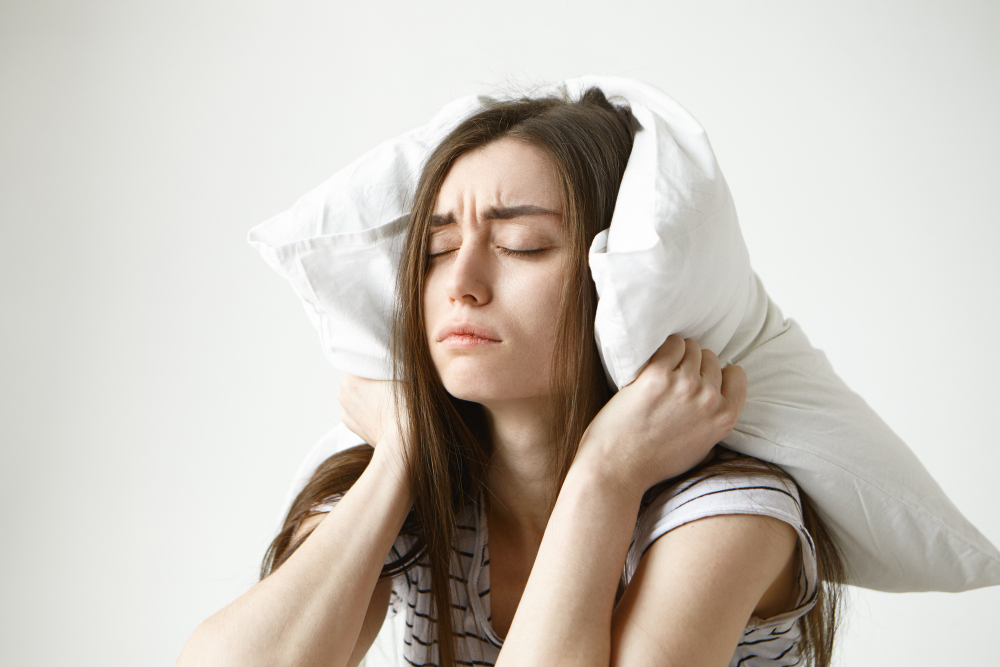Sleep Care
Understanding the Problem: Sleep Disorders and Stress in India
In India, sleep disorders and stress are prevalent issues affecting a significant portion of the population. A systematic review published in December 2023 found that 25.7% of individuals suffer from insomnia, 37.4% from obstructive sleep apnea (OSA), and 10.6% from restless legs syndrome (RLS).tress levels are also alarmingly high. A report from Deccan Herald indicates that 24% of Indians are struggling with stress, with 26% attributing it to their current work situation and 17% to financial instability.
Prevalence of Sleep Disorders in India
A study published in the Indian Journal of Sleep Medicine found that 83.4% of the population had some type of sleep disorder, with 78.2% reporting symptoms of insomnia and 29.2% experiencing moderate to severe insomnia. PubMed
Additionally, a study during the COVID-19 pandemic reported that 61.8% of participants experienced sleep disturbances, a two-fold increase compared to 34.2% of the adult Indian population reported in ordinary times. PubMed Central
Impact of Stress on Health
Stress is a major contributing factor to non-communicable diseases (NCDs), which account for 66% of deaths in India. Statista
A survey conducted among students across India found that 50% of respondents in the 24 to 34 age group reported feeling more stressed or anxious during the past 12 months.

Symptoms of Common Sleep Disorders
Understanding the symptoms of these conditions is crucial for effective management:

Insomnia
Characterized by difficulty falling asleep, waking up too early, or waking up multiple times during the night. Daytime sleepiness and irritability are also common.

Obstructive Sleep Apnea (OSA)
Symptoms include loud snoring, choking or gasping during sleep, excessive daytime sleepiness, and difficulty concentrating. Individuals may also experience mood swings and high blood pressure.

Restless Legs Syndrome (RLS)
Characterized by an irresistible urge to move the legs, often accompanied by uncomfortable sensations like tingling or crawling. Symptoms typically worsen in the evening and can lead to difficulty falling asleep.

Stress
Symptoms include anxiety, irritability, fatigue, difficulty concentrating, and physical symptoms like headaches or muscle tension. Chronic stress can also lead to sleep disturbances.
What is Insomnia or sleeplessness?
Insomnia, commonly known as sleeplessness, is a prevalent sleep disorder characterized by difficulties in falling asleep, staying asleep, or achieving restorative sleep, despite having adequate opportunity and environment for sleep. This condition can be short-term (acute), lasting from one night to a few weeks, or long-term (chronic), occurring at least three nights a week for three months or more. Common symptoms include daytime fatigue, irritability, mood disturbances, cognitive impairment, and decreased performance in daily tasks. Insomnia can result from various factors, including stress, anxiety, medical conditions, lifestyle habits, and environmental influences. Understanding and addressing insomnia is crucial, as it can significantly impact daily functioning and overall health.
Causes INSOMNIA AND SLEEPLESSNESS
Insomnia, or sleeplessness, is a prevalent issue that can significantly impact one’s quality of life. Ayurveda, the ancient Indian system of medicine, offers holistic approaches to manage and treat insomnia by focusing on balancing the body’s energies and promoting natural sleep patterns.
Ayurvedic Approaches to Insomnia
⦿ Herbal Remedies
Brahmi: Known for its calming and tranquilizing properties, Brahmi acts as a powerful brain tonic, supporting and improving mental functions.
Vacha (Acorus calamus): Traditionally used to treat conditions like epilepsy and insomnia, Vacha has a calming effect on the nervous system, aiding in sleep induction.
Ashwagandha: This adaptogenic herb helps the body manage stress, which can be a significant factor in sleep disturbances.
⦿ Therapeutic Massages
Shirodhara: This therapy involves gently pouring warm herbal oils over the forehead, which can relax the nervous system and promote better sleep.
Abhyanga (Oil Massage): A full-body massage with warm oils can soothe the body and mind, reducing stress and facilitating restful sleep.


⦿ Lifestyle and Dietary Modifications
Establishing a Sleep Routine: Maintaining consistent sleep and wake times helps regulate the body’s internal clock.
Dietary Adjustments: Incorporating foods with a natural sweet taste, such as grapes, can aid in sleep due to their melatonin content. By integrating these Ayurvedic practices into daily life, individuals may find relief from insomnia and achieve a more restful night’s sleep. It’s advisable to consult with a qualified Ayurvedic practitioner to tailor treatments to one’s specific constitution and needs.
⦿ Impact of Poor Sleep on Health
1. Inadequate sleep doesn’t just leave you feeling tired; it has far-reaching effects on physical and mental well-being:
2. Chronic sleep deprivation weakens the immune system, making the body more prone to infections and illnesses.
3. Studies from the Indian Journal of Medical Research highlight that poor sleep increases the risk of conditions like hypertension, diabetes, and depression.
Statista reports that 35% of people with sleep issues experience reduced productivity and increased emotional instability.
What are Valerian Capsules?
Valerian Capsules are an Ayurvedic solution to help you achieve a peaceful night’s sleep and manage stress effectively. These capsules are formulated with natural ingredients known for their calming and sleep-inducing properties, offering a gentle way to relax your mind and body.
Key Benefits of Valerian Capsules
Promotes Better Sleep: Valerian root is known to promote deep, restful sleep, reducing the time it takes to fall asleep.
Reduces Stress and Anxiety: Helps calm the nervous system and reduces anxiety, creating a sense of tranquility and peace.
Supports Natural Sleep Cycle: Non-habit forming and natural, these capsules help regulate your sleep cycle without the drowsy feeling of traditional sleep aids.
Enhances Relaxation: Ideal for those experiencing tension or restlessness due to stress or anxiety.
Safe and Non-Drowsy: Unlike pharmaceutical sleep aids, Valerian Capsules offer a natural way to unwind without causing grogginess or dependency.
Key Ingredients in Valerian Capsules
Valerian Root: Known for its calming effects on the mind and body, aiding in sleep regulation.
FAQs on Valerian Capsules for Sleep and Stress Relief
Yes, Valerian Capsules can be safely taken every night to improve sleep quality. If you have concerns, consult with a healthcare provider.
For best results, take the capsules 30 minutes to an hour before you go to bed.
Valerian Capsules are made with natural ingredients and are generally safe. If you experience any unusual symptoms, discontinue use and consult a healthcare provider.
It is advisable to consult a healthcare provider before combining with other medications or supplements.
